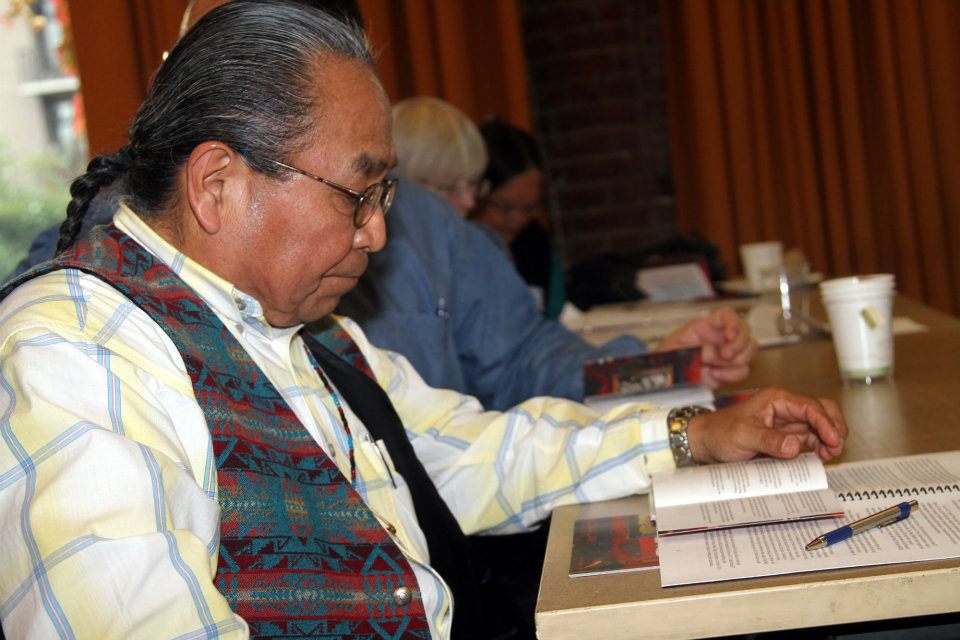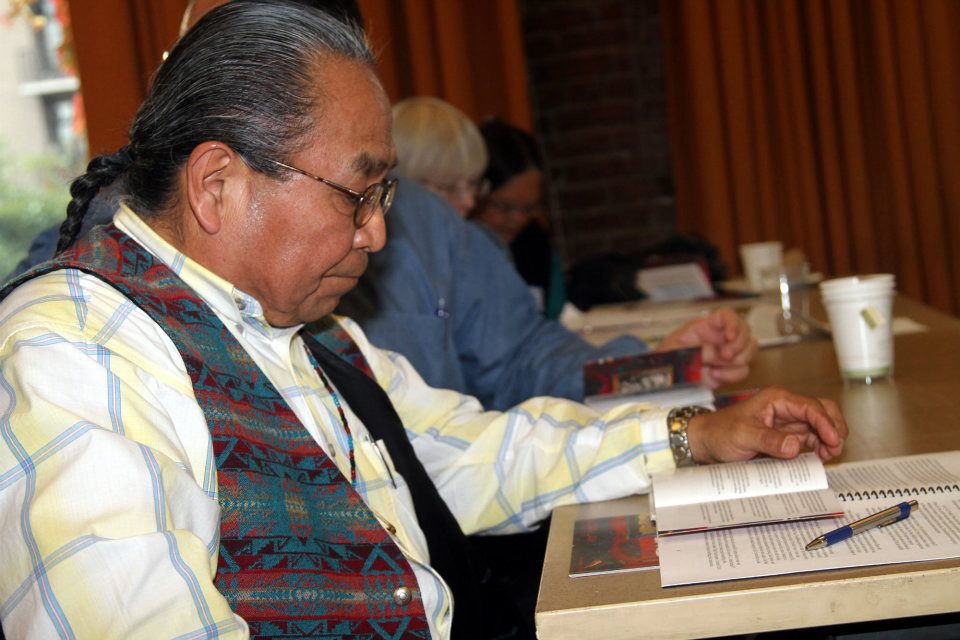
 More than any other factor, the current legal framework in the United States is responsible for the longstanding poverty, political marginalization, and social ills that afflict much of Indian Country. When President Barack Obama announced the United States’ support for the UN Declaration on the Right of Indigenous Peoples in 2010, he gave Indian country the hope of real change. Now is the time for tribal leaders to call for the full implementation of the Declaration and for removal of the legal barriers that impede tribal development and self-governance.
More than any other factor, the current legal framework in the United States is responsible for the longstanding poverty, political marginalization, and social ills that afflict much of Indian Country. When President Barack Obama announced the United States’ support for the UN Declaration on the Right of Indigenous Peoples in 2010, he gave Indian country the hope of real change. Now is the time for tribal leaders to call for the full implementation of the Declaration and for removal of the legal barriers that impede tribal development and self-governance.
"The Center is making every effort to leverage this rare opportunity by working alongside Native leaders and advocates in applying the principles in the Declaration," said Robert Coulter, Executive Director of the Indian Law Resource Center. “As President Obama said when he announced U.S. support for the Declaration, ‘What matters far more than words … are actions to match those words.’ The President asked us to hold his administration to that standard, and that is what we and a growing group of tribal leaders intend to do."
For the first time ever, Native nations have the opportunity to use the Declaration as the basis for defining a new era of federal Indian policy that more fully recognizes the inherent self-determination, economic development, and resource management rights of Native nations. This is an opportunity window that Native nations simply cannot allow to close before they are able to translate the Declaration into domestic law and policy.
As Mike Williams, an Alaska Native leader, stated, "There are many things that need to be corrected. The future of our children depend on our work on these issues."
Key to the Center’s effort to help leverage this moment are the Declaration briefing sessions -- like the one Mike Williams attended in Portland, Oregon -- being hosted throughout the country. More than 60 tribal leaders have attended these sessions, including leadership from the Sisseton Wahpeton Tribe, the Yocha Dehe Wintun Nation, Scotts Valley Band of Pomo Indians, North Fork Rancheria, Dry Creek Rancheria Band of Pomo Indians, Resighini Rancheria, Rincon Band of Luiseno Indians, Buena Vista Rancheria of Me-Wuk Indians, and Kashia Band of Pomo Indians. The Center has also presented on the Declaration to the Affiliated Tribes of the Northwest Indians and is currently preparing to present to the United Southern and Eastern Tribes in May and to Southwestern tribes in June. Additionally the Center hosted a general briefing session in Portland, Oregon and has plans to host attorney briefing sessions this spring and summer.
The Center’s briefing sessions feature a panel of experts who provide an overview of the Declaration and practical case studies on how it applies to Native nations today. Topics also include protecting tribal lands; re-establishing tribal jurisdiction to address the growing crisis of violence against Native women; and using the Declaration to spark economic development. The overview is enhanced with group discussions and practical exercises to help tribal leaders begin to build their own plans on applying the Declaration. Feedback from participants is overwhelmingly positive. Participants leave feeling far more familiar with the Declaration and its value as a tool for reform. Participants also leave the sessions with a “Practical Steps” booklet that contains materials they can share with their communities and use to translate the Declaration into real change. This includes a draft letter to the President Obama requesting the issuance of an Executive Order ordering all federal departments and agencies to (1) immediately review the laws and policies within their areas of responsibility for compliance with the Declaration and (2) consult with Native nations to determine which laws and policies must be changed to comply with the rights in the Declaration.
"We need to educate ourselves so we can all see how this will benefit us," said Carol Goodbear, Mandan Hidatsa Nation and participant in the Portland, Ore, training. " We have a right to exist as a cultural people free from any injustices. "
The window of opportunity to make lasting change is limited. Native nations must act quickly to establish and assert the rights under the Declaration. In order to see major legislation become reality it will take broad support from tribal governments. There are many things that Native leaders and advocates can do now to start moving the implementation of the Declaration forward.
To request a regional or on-site Declaration briefing session, please contact the Indian Law Resource Center at mt@indianlaw.org
